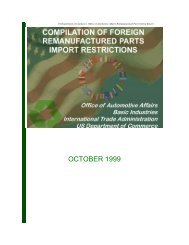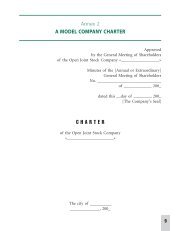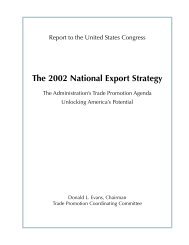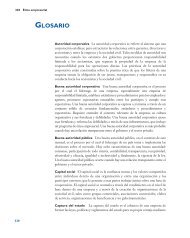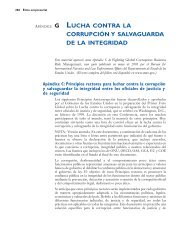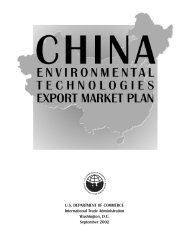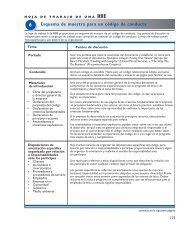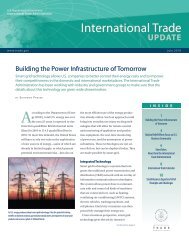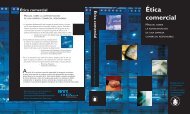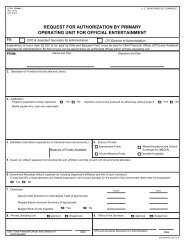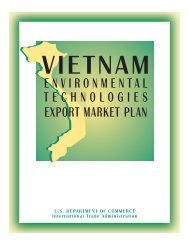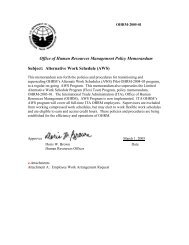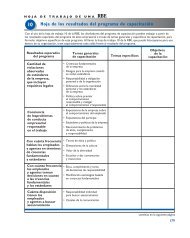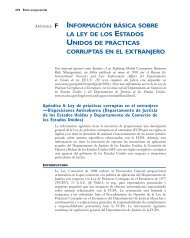Global Steel Trade; Structural Problems and Future Solutions
Global Steel Trade; Structural Problems and Future Solutions
Global Steel Trade; Structural Problems and Future Solutions
Create successful ePaper yourself
Turn your PDF publications into a flip-book with our unique Google optimized e-Paper software.
steel coil, electrically galvanized plate <strong>and</strong> wire rod markets, as well as 60 percent of the heavy <strong>and</strong> thick plate market.<br />
POSCO also leads the zinc-coated steel sheet market with a 50 percent share, <strong>and</strong> a 24 percent share of the tin-coated<br />
steel sheet market, surpassed only by Dongyang Tinplate Corporation which holds a 40 percent share. See CMA-<br />
Korea, “Part 1. <strong>Steel</strong> Producers.”<br />
51. KFTC, November 1998 Report.<br />
52. Id.<br />
53. Government of Korea March 9, 1999, Response to USTR’s Questions.<br />
54. KFTC November 1998 Report. For restricting its sales outlets from h<strong>and</strong>ling competing companies products,<br />
POSCO was fined 1.64 billion won. The KFTC also found unlawful unfair joint activities of the tin-plated <strong>and</strong> other<br />
flat steel companies, including Posteel, Dongbu <strong>Steel</strong>, Dongyang Tin Plate <strong>and</strong> Shinhwa Industries. According to the<br />
KFTC, these companies “restrict competition in the market for their products by deciding through agreement … the<br />
selling price for tin-plated flat steel, freight charged to customers’ location, <strong>and</strong> their respective market shares.”<br />
Posteel was fined 3.3 billion won for these activities. In addition, along with Union <strong>Steel</strong> <strong>and</strong> Dongbu <strong>Steel</strong>, POSCO<br />
was found to restrict competition in the color coated steel market by agreeing to <strong>and</strong> carrying out a 19.5 percent price<br />
increase in unfair joint activities. The fine for POSCO was 115 million won. POSCO’s total fines came to about $3.5<br />
million, at the existing exchange rate.<br />
55. Korean Government Response to USTR’s Questions. April 1999. The policy of setting artificially low hotrolled<br />
coils prices was officially discontinued in 1999.<br />
POSCO has been able to maintain its profitability despite the influence of the government in setting low prices<br />
for some products. In 1998, for example, while most Korean steel producers were struggling with huge debt burdens<br />
<strong>and</strong> were close to collapse, POSCO recorded more than $800 million in profits out of $7.9 billion in sales, an<br />
astounding profit margin of more than 10 percent during Korea’s worst post-war economic crisis. As explained above,<br />
POSCO’s dominant position in the domestic market gives the company a solid <strong>and</strong> reliable sales base.<br />
POSCO’s success during the crisis can, in part, be explained by the company’s excellent balance sheets—the<br />
company has a very low debt burden <strong>and</strong> excellent cash flow. Moreover, during 1998, POSCO’s exports, which<br />
increased by approximately 14 percent from 1997, resulted in higher won-denominated earnings given the 32 percent<br />
depreciation of the Korea won. Further, according to one report, the company’s foreign currency based revenues<br />
exceeded its raw material import costs. This report also explains that this was one reason how POSCO could maintain<br />
its operating profit at a time when international steel prices were collapsing <strong>and</strong> domestic dem<strong>and</strong> had nearly<br />
evaporated. Hannuri Investment & Securities, POSCO (0549.KS) -- Up-shifting Earnings Momentum, 31 May 1999.<br />
56. POSCO determined domestic prices for some products with reference to the price of imports. Since imports<br />
were subject to import duties, POSCO set its domestic price in Korean Won to compete with the duty-inclusive import<br />
price. However, for domestic customers purchasing some products to be further manufactured for export, POSCO set<br />
the local export at slightly below the duty-inclusive import price because such imports were eligible for duty<br />
drawback. See 64 FR 30636, June 8, 1999. More information on this system <strong>and</strong> Department of Commerce cases in<br />
which it was discussed, is available from “Subsidy Programs Investigated by DOC.” http://www.ita.doc.gov/<br />
import_admin/records/esel/; Internet. The three-tiered pricing structure is also discussed in Korean Government<br />
Response to USTR’s Questions. April 1999.<br />
57. KFTC, November 1998 Report. Moreover, the recent acquisition of shares in the sales outlets by POSCO has<br />
meant that the company’s power over distributors has become even stronger, which may further restrict new entrants<br />
<strong>and</strong> competitors from entering the market.<br />
58. “POSCO Struggling to Cope with Challenges at Home, Abroad,” The Korea Herald, November 23, 1998.<br />
59. Government of Korea March 9, 1999, Response to USTR’s Questions.<br />
60. “S. Korea Cautions Business on Expansions.” Virtual <strong>Steel</strong> News , October 16, 1997 Web site available from<br />
http://www.Virtualsteel.com; Internet, accessed February 8, 2000. Oh Kang-hyun, then-Korean Deputy Minister for<br />
International <strong>Trade</strong>, noted that the South Korean Government had repeatedly expressed its “hope <strong>and</strong> desire” that<br />
Hyundai would not enter the steel business. “Hyundai wanted to build an integrated steel mill which would have<br />
competed with POSCO’s position of being the only integrated steel mill in Korea. Samuel Len, “<strong>Steel</strong> Firms to Face<br />
Stiffer Competition,” Korea Herald, January 10, 2000 “Hyundai’s aspirations to secure its own steel supply has been<br />
blocked by a government that has been touting a small-business strategy.”; Yoo Cheong-mo, “Presidential Hopefuls<br />
Advocate Free Market,” Korea Herald, July 23, 1997 [Kim Dae-jung criticized] the government’s opposition to<br />
Hyundai’s entry into steel-making business; Lee Kap-soo, “Hyundai to Introduce Technology for Construction of<br />
<strong>Steel</strong>works in Hadong from Germany or Japan,” Korea Herald, October 29, 1997 “[Hyundai’s steel] project, however,<br />
is expected to face serious difficulties as the government objects to Hyundai’s latest move, citing concerns over a<br />
possible glut in steel supply.”<br />
214 <strong>Global</strong> <strong>Steel</strong> <strong>Trade</strong>: <strong>Structural</strong> <strong>Problems</strong> <strong>and</strong> <strong>Future</strong> <strong>Solutions</strong>



